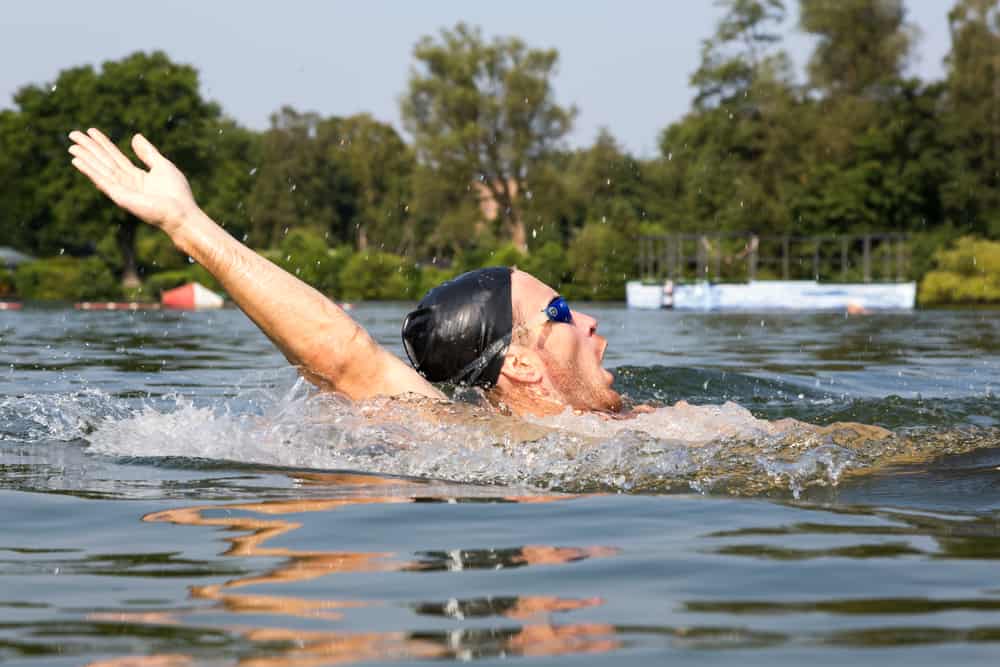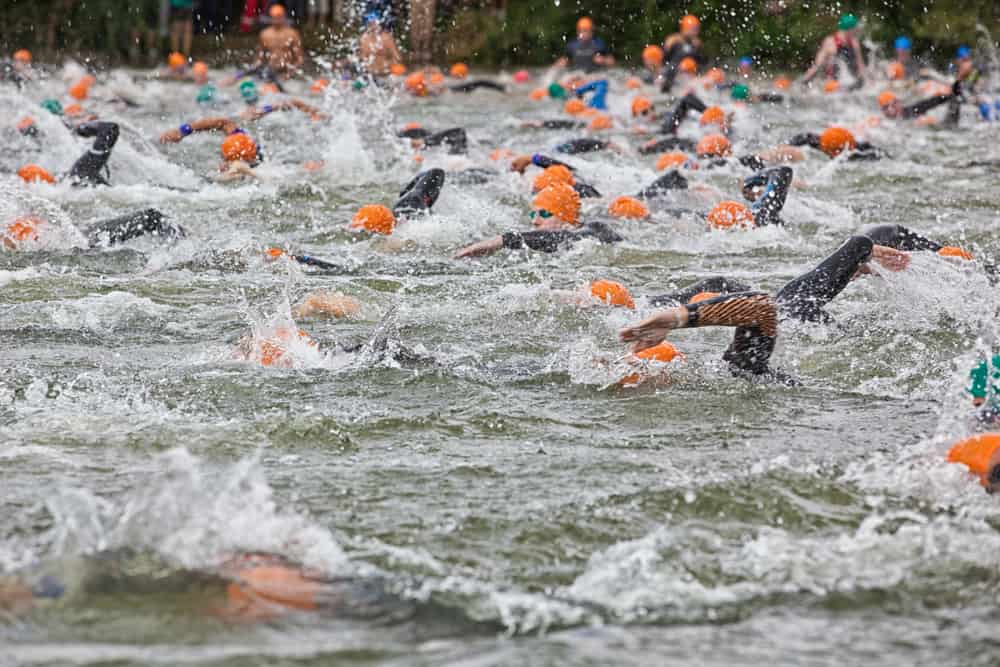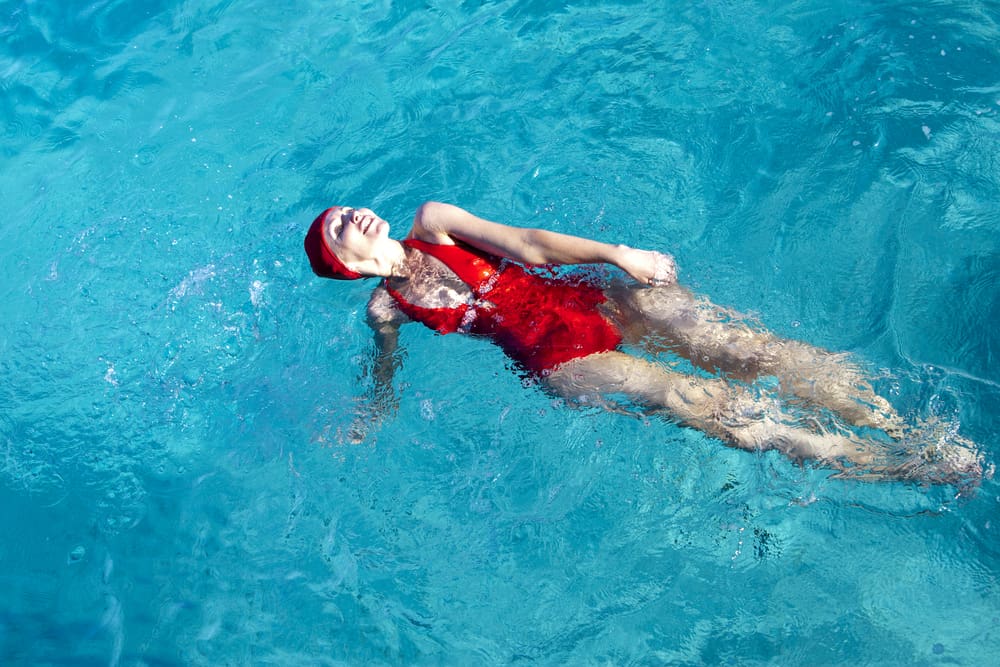Swimming in open water is more challenging than swimming in a pool. The biggest reason for this is that there are more factors to consider when swimming in open water. For example, you have to worry about the current and the wind, making swimming difficult.
Additionally, you must be aware of any potential obstacles in the water, such as rocks or debris. Finally, the water is usually colder in open water, making it challenging to swim for long periods.

Table of Contents
The Beginner’s Guide to Open-Water Swimming
Open-water swimming can be a great way to get fit and have fun. But before you head out into the open water, there are some things you need to know. This beginner’s guide will teach you the basics of open-water swimming, including choosing the right location, staying safe in different weather conditions, and more!

Choosing the right location is one of the essential things when open-water swimming. Make sure to select a spot that is calm and has good visibility. You also want to ensure no hazards like rocks or logs in the water.
Knowing the weather conditions is also essential before heading out into the open water. Swimming in cold weather can be dangerous if you’re not prepared. Make sure to dress appropriately and bring plenty of warm clothes and a dry set of clothes for after your swim.
Swimming breaststroke in open water can be a lot of fun, but it’s essential to stay safe while you’re doing it. Follow these tips, and you can enjoy your open-water swimming experience safely and confidently.
How to avoid panicking when open water swimming
Open-water swimming can be a great way to get in some exercise, but it can also be terrifying for some people. If you’re one of those who tend to panic when swimming in open water, here are a few tips that help you stay calm and avoid accidents.

First, make sure you’re comfortable in the water. If you’re not a strong swimmer, try to find a body of water that’s not too deep and stick to areas familiar to you. When you’re ready to swim in open water, start slowly and build up your confidence gradually.
If you start to feel panicky or anxious, take some deep breaths and focus on your surroundings. Picture yourself completing the swim successfully and remind yourself that you can always get out of the water if necessary. Most importantly, try not to panic – this will only worsen things.
With a bit of practice, you’ll be able to swim in open water without any problems. Just remember to stay calm and focus on your breathing.
The Difference Between a Pool Swim & Open Water
When it comes to swimming, there are two main types of environments: a pool and open water. Swimming in a pool is a different experience than swimming in open water. In a pool, the water is typically warmer, and there is less contact with the ground. Pool swimmers also tend to swim shorter distances than open-water swimmers.

Open-water swimming can be a bit more challenging because the water is colder, and there is a higher chance of coming into contact with rocks, shells, or other debris on the bottom. Additionally, open-water swimmers often swim further distances than pool swimmers.
Open-water swimming can be a great way to improve your swimming skills and endurance. It can also be a fun and exhilarating way to enjoy the outdoors.
If you’re thinking about swimming in open water, be sure to do your research and be prepared for the challenge. But don’t let the challenges deter you from enjoying this unique and rewarding experience.
Top 5 Reasons Why a Pool is Better than the Beach
A pool is a much better place to cool off and relax than the beach. A collection is a great place to beat the heat and hang out with friends, plus plenty of pool games to keep you entertained.

Here are the top 5 reasons a pool is better than the beach!
- You don’t have to worry about sand getting everywhere. This is a big one! Nobody likes dealing with sand in their clothes, hair, and shoes. With a pool, you don’t have to worry about that. You can jump in and enjoy the water without dealing with any sand.
- The water is usually cleaner in a pool than at the beach. This is because pools are typically treated with chemicals to clean the water. Beaches, on the other hand, are usually not treated with chemicals. This means that the water at the beach can be full of bacteria and other nasty things.
- There are plenty of pool toys and games to keep you entertained. You can do fun things in a pool, from pool noodles to basketball hoops. You can even play fetch with your dog! There’s no shortage of things to do in a pool, and you’re sure to find something you enjoy.
- You can control the water temperature in a pool, but you can’t do that at the beach. This is an excellent benefit if you’re looking to cool off on a hot day. You can adjust the water temperature in a pool to be as cold or as warm as you want. However, you can’t do that at the beach. The water is usually the same temperature as the air, which means it can be pretty cold if you’re not used to it.
- You can sit or lie down in a pool, but the sand at the beach can be uncomfortable. A pool is a way to go if you want to relax in the water. You can sit or lie in the water and enjoy the coolness without worrying about the sand. The sand at the beach can be pretty uncomfortable, and it’s easy to get sunburned if you’re not careful.
As you can see, there are plenty of reasons why a pool is better than a beach. A pool is perfect if you’re looking for a place to cool off and relax. There’s no need to deal with sand, and the water is usually clean and refreshing.
Plus, there are plenty of things to do in a pool to keep you entertained. So next time you’re looking for a place to take a dip, make sure to head to your nearest pool.
